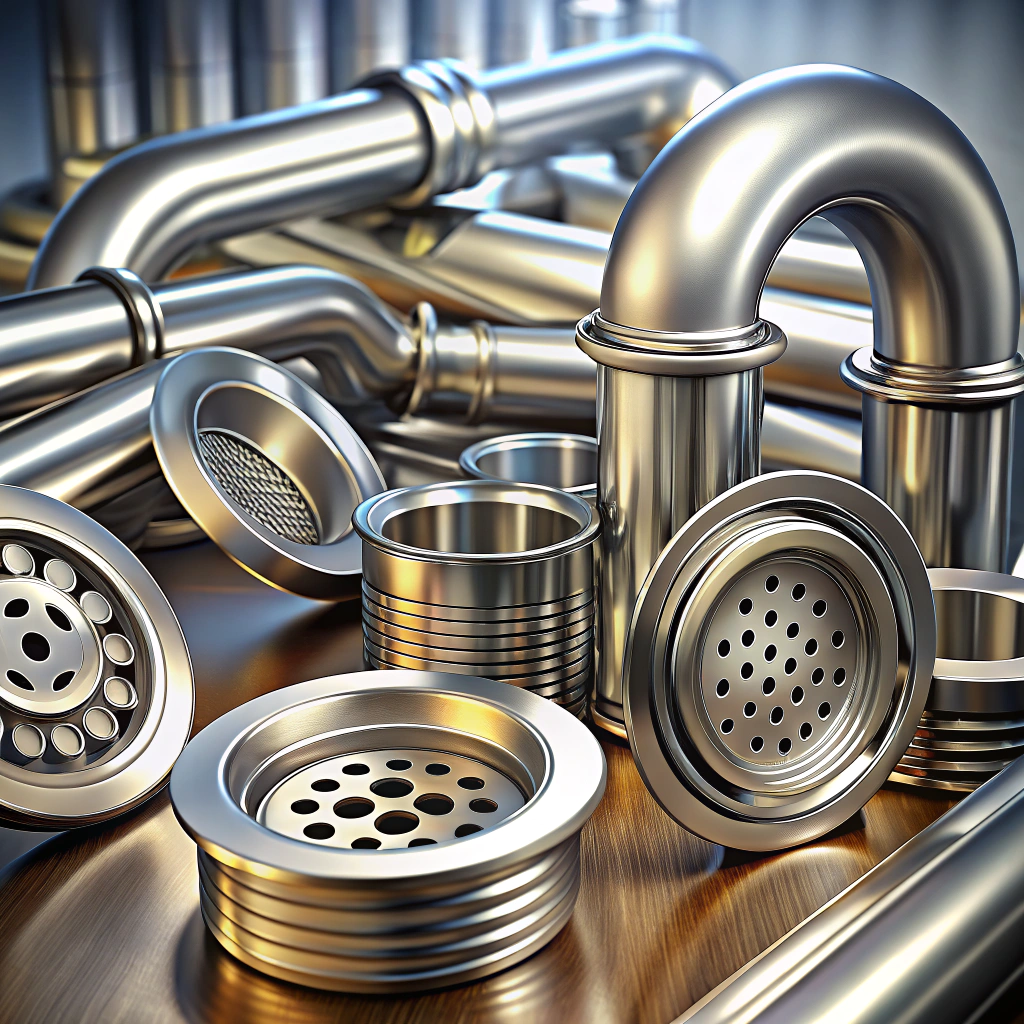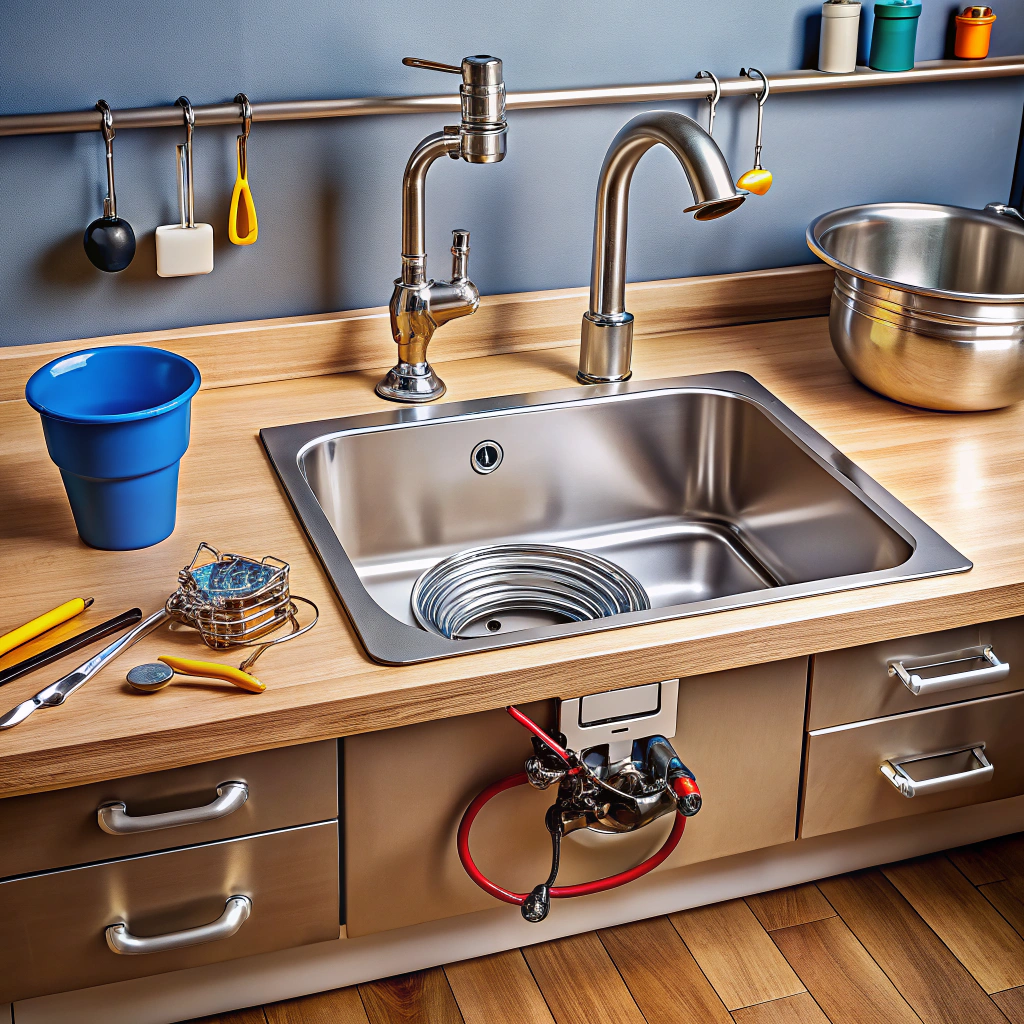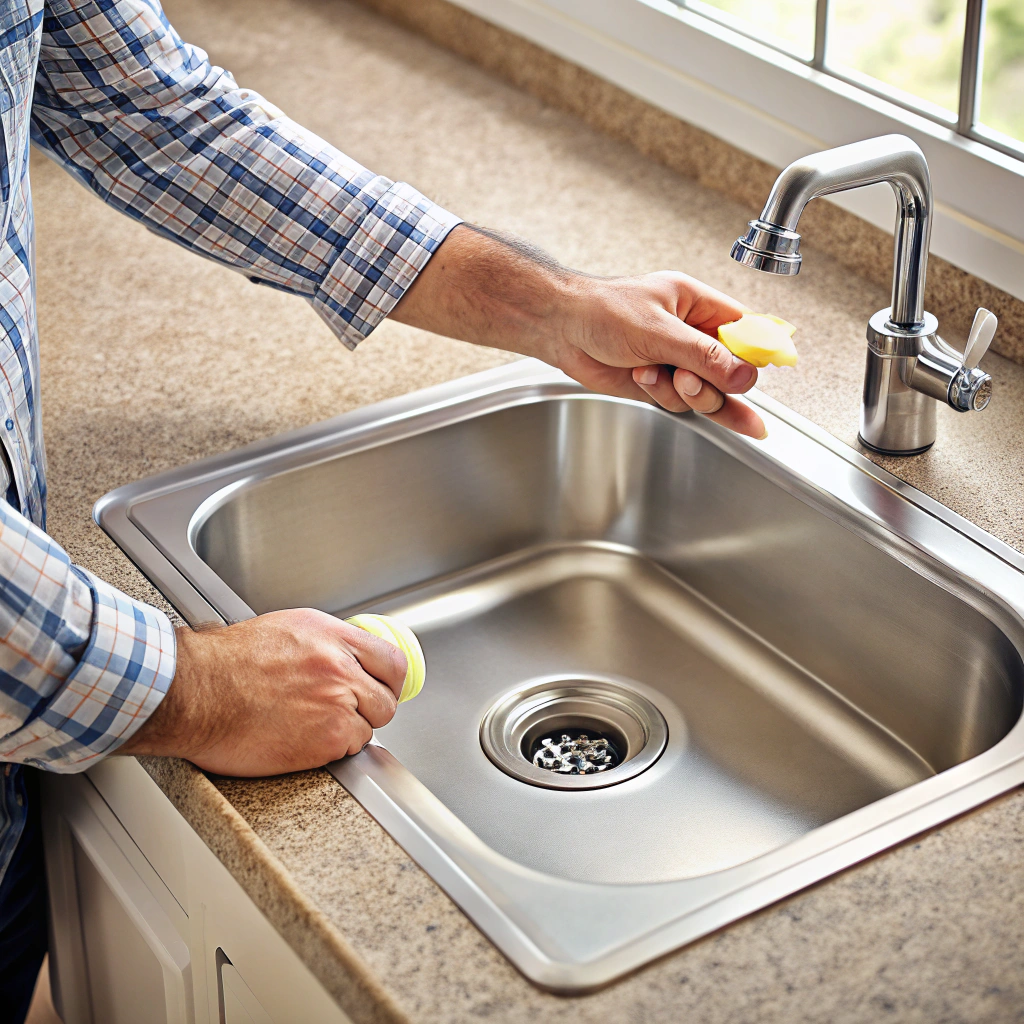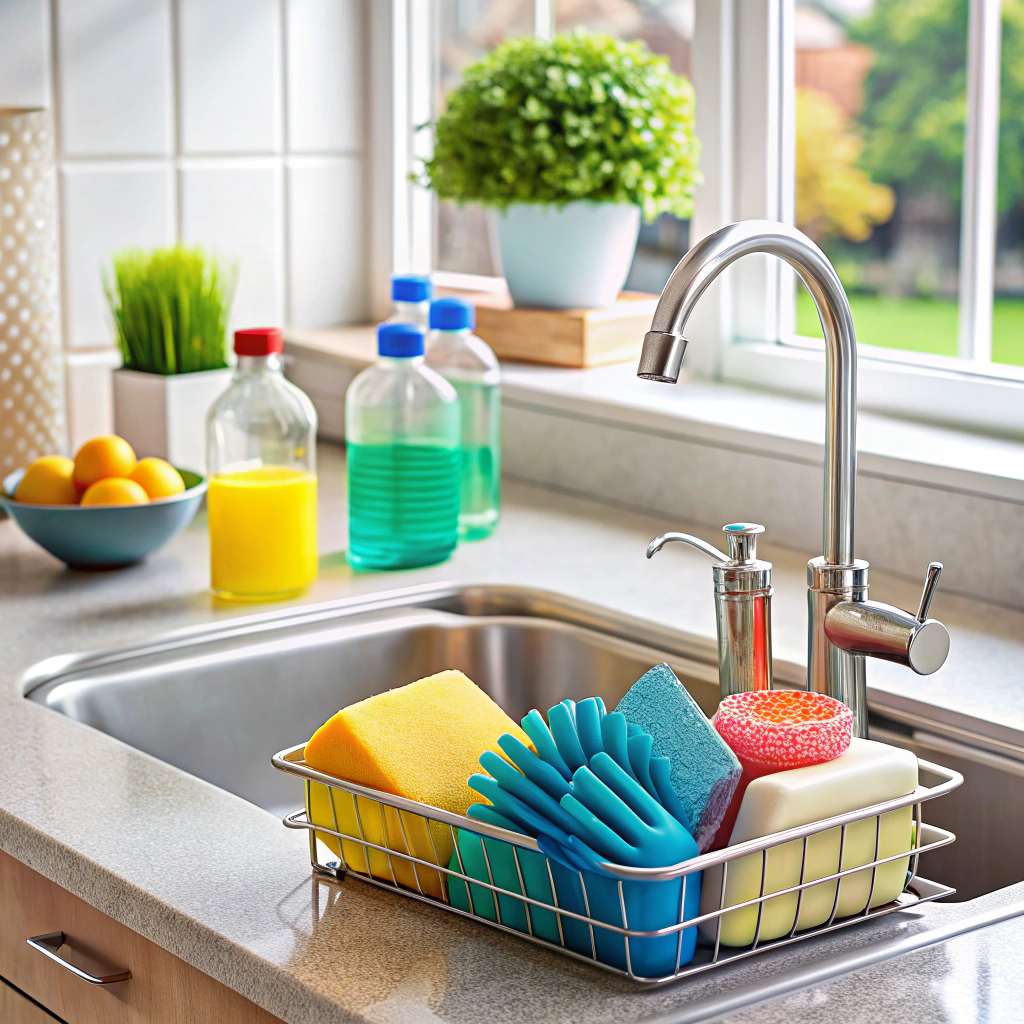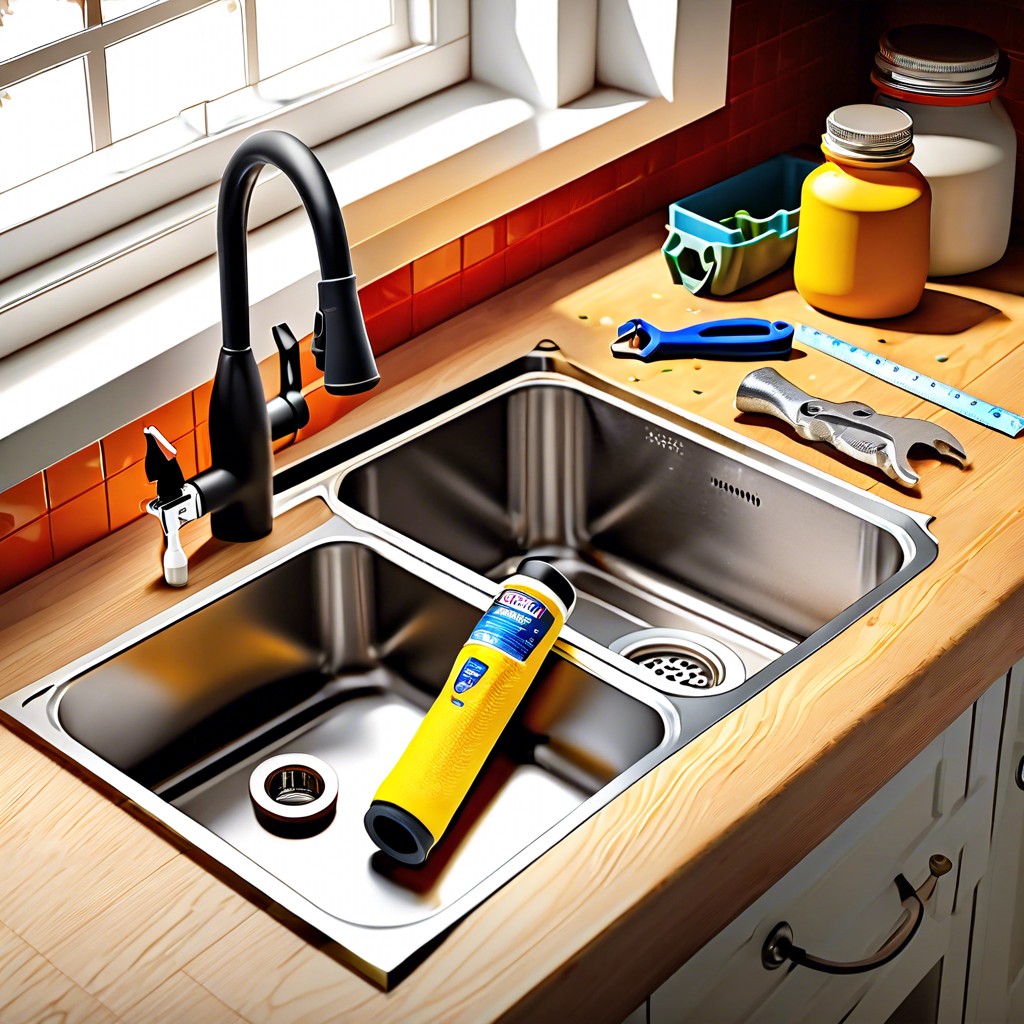Last updated on
Discover practical steps to eliminate odors from your sink drain effectively.
Key takeaways:
- Boiling water and soap: Dissolve organic matter causing odor.
- White vinegar and baking soda: Chemical reaction breaks down debris.
- Salt and lemon peels: Natural and refreshing method to tackle odors.
- Signs for professional plumber: Persistent odor, gurgling noises, water backing up, leaks.
- Bacteria growth: Regular maintenance and enzymatic cleaners prevent odors.
What's Inside
Boiling Water and Soap
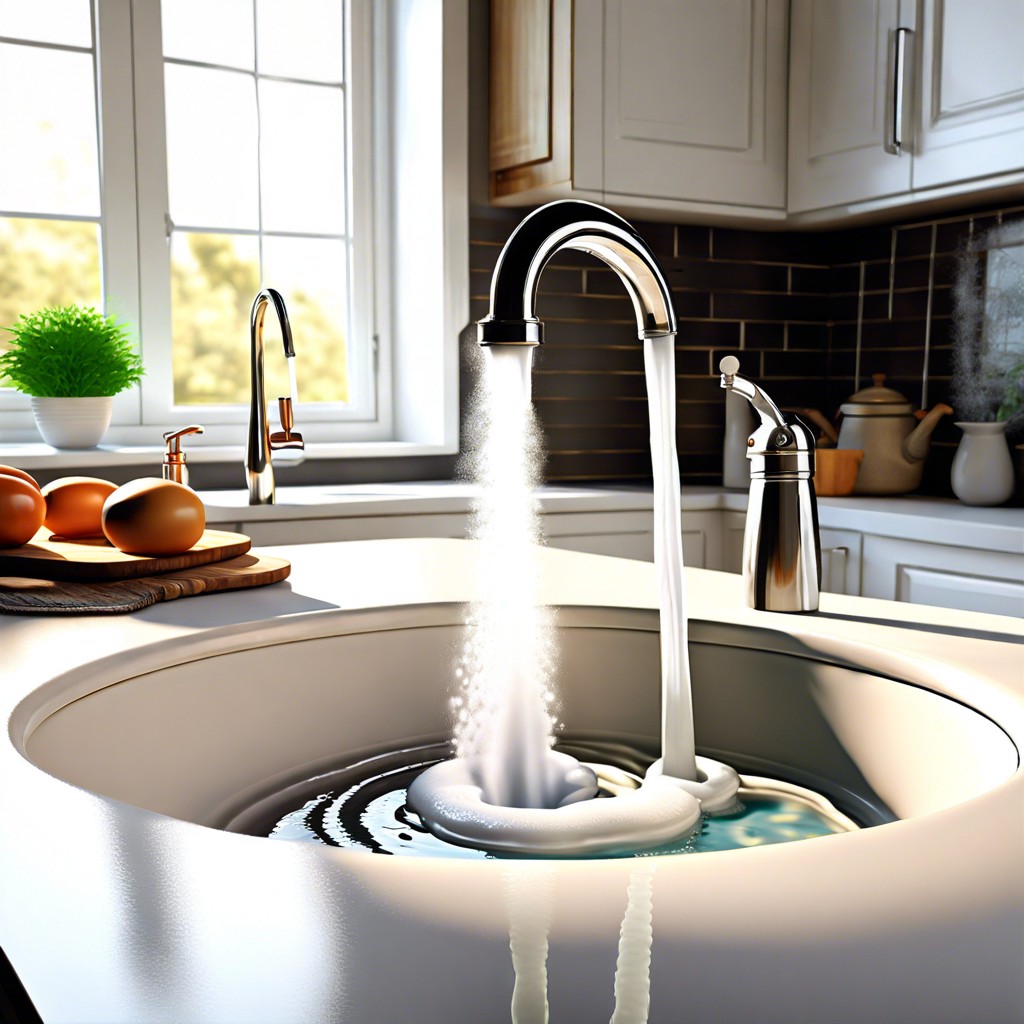
Pouring a pot of boiling water down the sink helps to dissolve the organic matter that might be causing the smell. The heat breaks down food particles, grease, and grime, which are common culprits of foul odors. Following the boiling water with liquid soap adds a layer of cleansing. Opt for a grease-fighting dish soap to efficiently cut through the residue. Here’s how to efficiently execute this method:
- Boil a kettle or pot of water until it reaches a rolling boil.
- While waiting, squirt a generous amount of liquid dish soap down the smelly drain.
- Carefully pour the boiling water down the drain to flush out the soap and loosened grime.
- Repeat if necessary.
This simple heat and soap combination can be remarkably effective at breaking down and clearing out odor-causing substances. For routine maintenance, performing this action weekly can help keep smells at bay. Remember, boiling water should not be used on PVC pipes as the heat can cause them to soften or melt. If you have PVC pipes, opt for hot, but not boiling, water instead.
White Vinegar and Baking Soda
When diving into the dynamic duo of white vinegar and baking soda, you’re capitalizing on a powerful chemical reaction. Baking soda, a base substance, reacts with white vinegar, an acid, creating a fizzing action that lifts and breaks down gunk and grime. Here’s how you can deploy these kitchen staples to freshen up your sink drain:
Start by pouring a pot of boiling water down the drain to loosen the initial layer of residue. Next, add about half a cup of baking soda directly into the drain. Allow it to sit for a few minutes to absorb odors and dislodge debris clinging to the pipes.
Follow this with a mixture of one cup of white vinegar and one cup of hot water. Immediately after pouring this solution down the drain, you’ll notice bubbling. This is your cue that the reaction is doing its job, scourging the depths of your pipes.
After about 10 minutes, give the reaction a fitting send-off with another pot of boiling water. This final rinse helps to flush out the remnants, leaving your drain odor-free and your sink environment much more pleasant. Through this simple yet effective method, unwanted sink odors can become a thing of the past.
Salt and Lemon Peels
Using a combination of salt and lemon peels offers a refreshing and natural way to tackle sink odors. Salt acts as a mild abrasive that helps to remove grease and food particles that contribute to unpleasant smells. When mixed with hot water, it can effectively clear out the debris clinging to the inside of your pipes.
Lemons, on the other hand, are natural deodorizers. The citric acid they contain is excellent for breaking down gunk that fosters bad odors, while their fresh scent permeates your drain, leaving behind a pleasant, clean fragrance. Moreover, lemon’s antibacterial properties help to further sanitize the drain.
To harness this dynamic duo, simply sprinkle half a cup of salt down the drain. Follow this by feeding it with thinly sliced lemon peels – the peels’ oils compound the fresh scent and the cleaning action. Boil water and carefully pour down the drain to activate the salt and help the lemon’s oils release their fragrance and cleaning power. Run hot water for a few minutes afterward to flush away the loosened debris and spread the citrusy smell. Regular use not only maintains a fresh drain but also prevents the buildup that leads to pungent odors.
Signs That You Need a Professional Plumber to Fix the Situation
Persistent odors after trying multiple solutions signal a deeper issue. If the stench doesn’t subside with DIY methods, it’s a red flag. Repeating quick fixes without success means you’re treating symptoms, not causes.
Gurgling noises paired with smelly drains can indicate blockage deep in your pipes. These sounds suggest that water is struggling to pass through. It might be time for a professional to take a look.
Water backing up is another sign to watch out for. This situation not only points to a possible clog but also increases the risk of water damage. It’s best to address this problem quickly by calling a plumber.
Visible leaks near your sink or in the cabinet below are not to be ignored. Leaks often contribute to the growth of mold and mildew, which add to odor problems. A professional can repair leaks and prevent further damage.
Lastly, if there are no visible reasons for the smell, you could have an issue with your vent pipes. These pipes regulate the air pressure in your drain system, and a fault in them might require tools and expertise beyond the average homeowner’s.
Bacteria Growth
The presence of bacteria is a primary culprit behind odorous drains. These microorganisms thrive on organic matter that often gets trapped in your pipes, breaking it down and emitting foul scents in the process. Understanding the role of bacteria can provide insight into effective cleaning methods.
Regular maintenance is key to preventing bacteria build-up. Flushing drains with hot water weekly can deter bacterial colonies from settling. Additionally, minimizing the amount of food and organic material that goes down the sink will starve the bacteria, keeping bad odors at bay.
Natural solutions can also help neutralize bacteria-driven odors. Enzymatic cleaners, for instance, are biological agents that consume bacteria and the organic material they feed on. These cleaners continue working long after you’ve poured them down the drain, providing a lasting solution.
Remember, if the smell persists after trying various methods, it could suggest a deeper plumbing issue. In such cases, it often means the bacteria have found a particularly hospitable spot well beyond the reach of DIY solutions, necessitating professional intervention.
